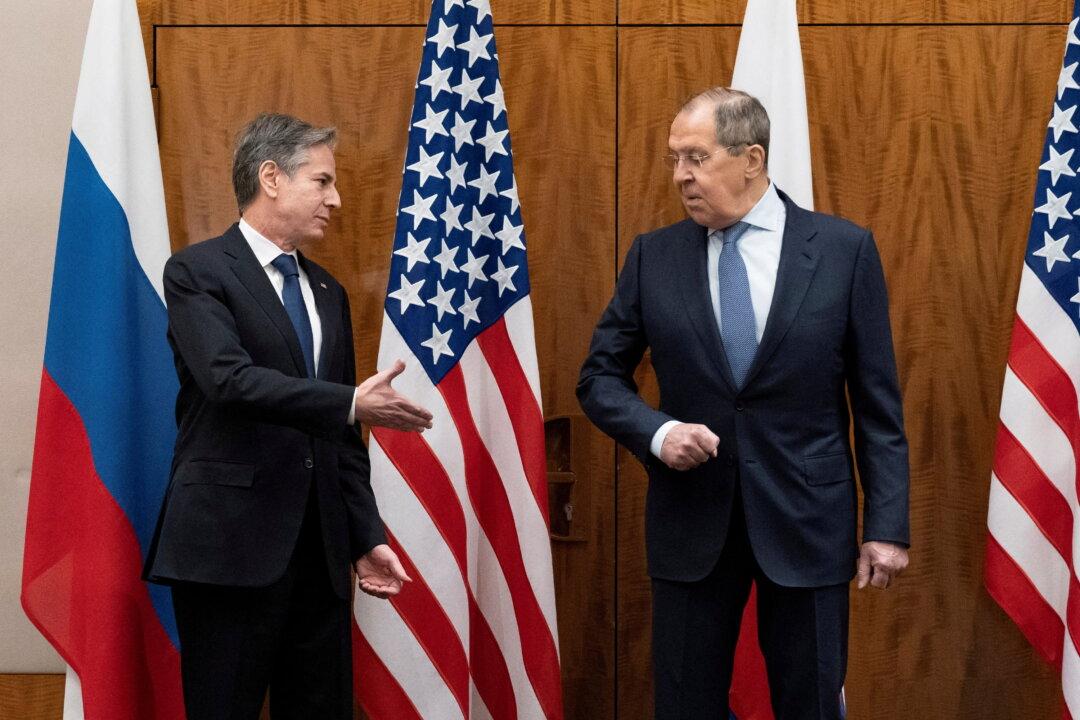Russian Foreign Minister Sergey Lavrov is prepared to meet his U.S. counterpart, Secretary of State Antony Blinken, during an upcoming visit to New York, Moscow’s permanent representative to the world body said on April 4.
Vasily Nebenzya said the meeting would depend on “where Secretary Blinken will be at that time and his ability and willingness to meet our foreign minister,” in remarks cited by Russia’s TASS news agency.





